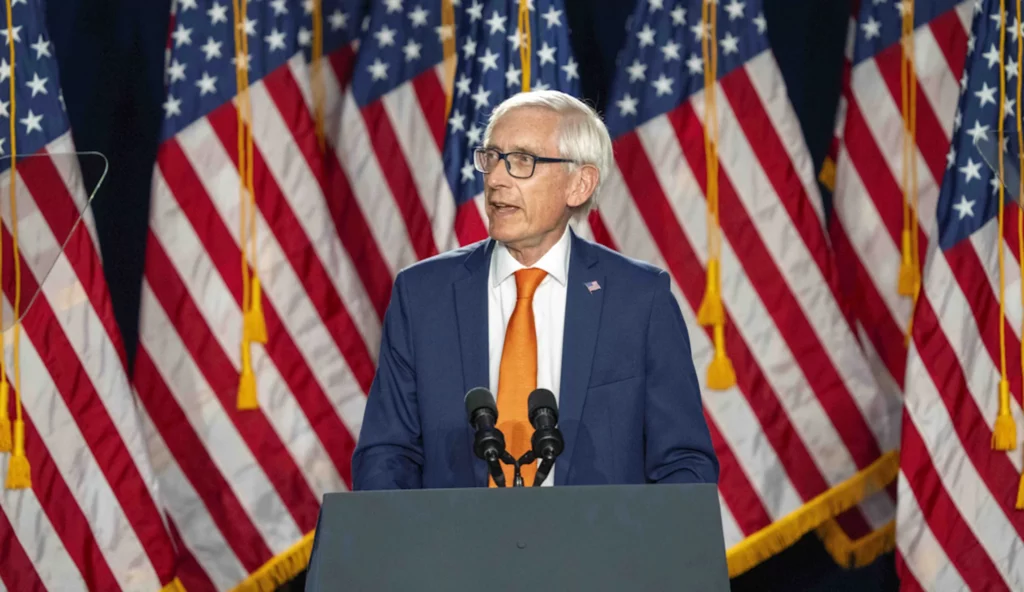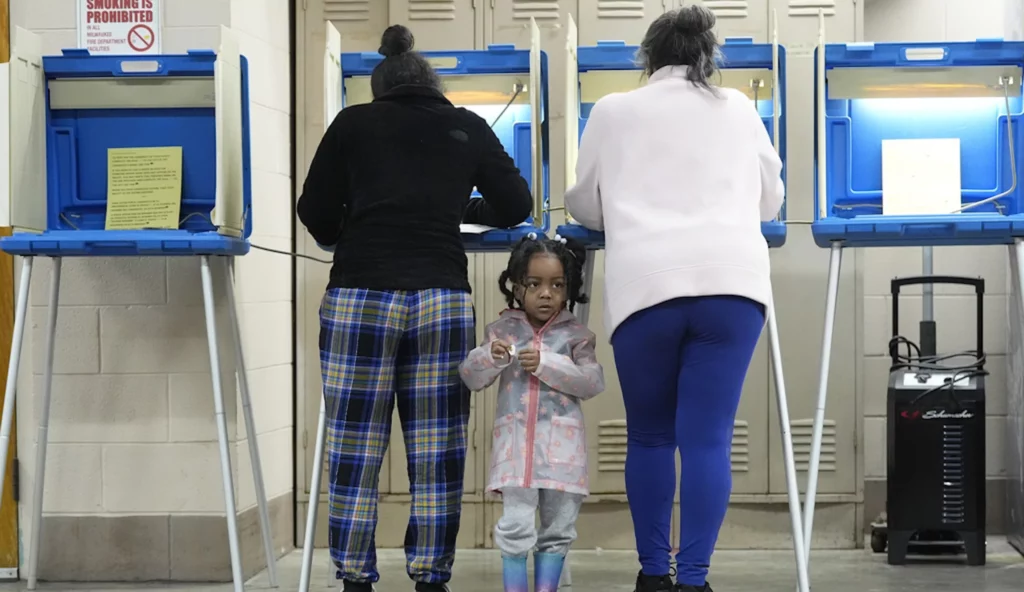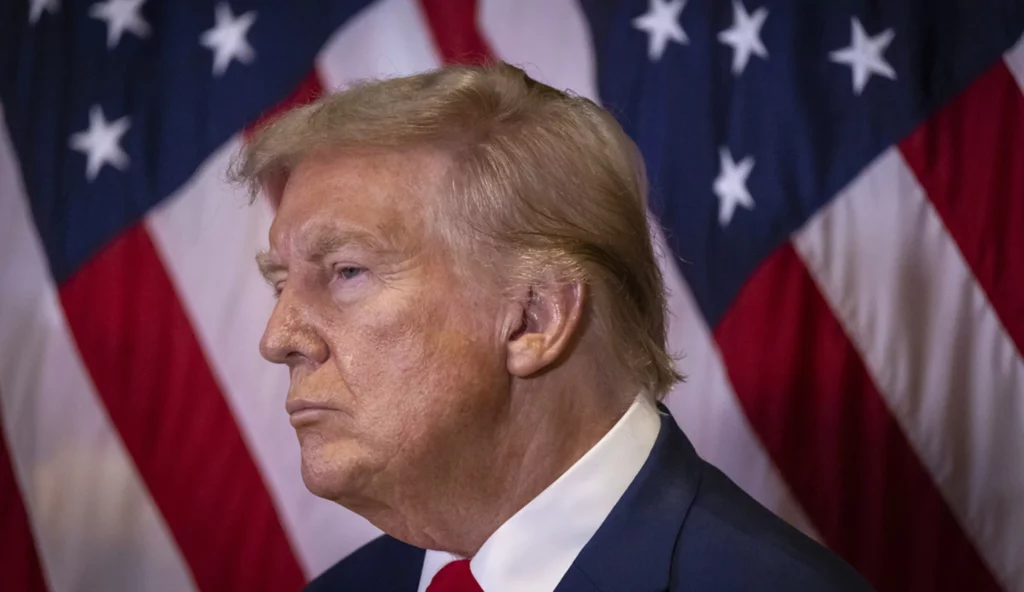
Early voting is poised to get underway in several states this month. The Washington Examiner will take a closer look at the swing states, including voting rules you need to know and key differences from prior elections. Part 6 of Battleground Ballots will focus on what has changed in Wisconsin, a crucial state that former President Donald Trump lost by less than a percentage point in 2020.
The Wisconsin Supreme Court is set to have an outsize impact on elections this November after it upended the district maps that will decide control of the state legislature. Ballot boxes will now be legal too due to a recent lawsuit.
Election laws have barely changed in Wisconsin since 2020 thanks to divided government. The GOP-controlled statehouse has passed a wave of voting changes, including new audit and nursing home requirements, but almost all have been vetoed by Gov. Tony Evers (D-WI).
There have been rare spots of bipartisanship, including a law that makes assaulting an election official a felony. Meanwhile, a referendum voters approved in April bans the use of private grants, derided by conservatives as “Zuckerbucks,” in the administration of elections.
But the biggest changes in Wisconsin this November have come from the Supreme Court, newly controlled by a 4-3 liberal majority.
New court makeup helps Democrats
For 15 years, conservatives ran the high court, issuing rulings that preserved Republican priorities including a 2011 voter ID law.
But a blockbuster race for control of the Supreme Court has begun to reverse that trend. Last year, conservatives lost their 4-3 majority in a judicial contest that cost upward of $50 million, the most expensive in U.S. history.
For 2024, the biggest impact will be an expansion in absentee ballot drop boxes. The high court ruled in July that the boxes would be legal in November, reversing a near-total ban by the same court’s conservatives in 2022.
Not every municipality will take advantage of the change. But Democrats viewed the 2022 ruling, issued amid the rise of absentee voting during the pandemic, as an attempt to suppress turnout in blue strongholds like Milwaukee and Madison.
Republicans accused the court of opening up the state to voter fraud with its subsequent reversal.
The court could flip back to conservative control in 2025, when voters will decide on a replacement for a retiring liberal justice. Brian Schimming, the chairman of the Wisconsin Republican Party, predicted the race would be just as expensive.
“I can’t imagine that it won’t be,” he said. “It’s one seat, but it’s also the majority.”
But until then, Democrats’ Supreme Court victory will have a profound impact on the balance of power in Wisconsin.
In December, the justices declared the map for state legislative races, considered to be heavily gerrymandered, unconstitutional. Republicans are still expected to maintain control of the statehouse but will likely lose seats after agreeing to a compromise map with Evers.

Each side has feuded over the perceived partisanship of the Supreme Court. Schimming criticized Janet Protasiewicz, the newest justice, for openly campaigning on abortion access last year.
“This is not just a liberal court, this is an activist court,” he said.
Ben Wikler, the chairman of the state Democratic Party, said the court had merely been wrested from the “right-wing fringe.”
“If you’re used to the playing field being tilted in your favor, then an even playing field feels unfair,” he said.
Legal challenges cast uncertainty over presidential ballot
The new Supreme Court has not reliably sided with Democrats. In March, it rejected a Democratic attempt to overturn the compromise map Evers had signed.
Three months later, Republicans scored a temporary victory when the justices kept in place a ban on mobile voting sites amid concerns the vans would be stationed disproportionately in Democratic areas.
But the Supreme Court’s role as arbiter in a series of election-year disputes has kept it in the spotlight. Most recently, the Supreme Court denied a Democratic effort to remove Green Party candidate Jill Stein from the presidential ballot.
Not all ballot access cases have risen to the Supreme Court. For the most part, the disputes have been handled by the Wisconsin Elections Commission.
The commission rejected a Democratic attempt to remove independent candidate Cornel West, viewed as a spoiler for Vice President Kamala Harris, from the ballot in August. Republicans also failed to remove Robert F. Kennedy Jr., who suspended his campaign for president on Aug. 23 and endorsed former President Donald Trump.
All told, eight candidates have been approved for the presidential ballot in Wisconsin, including Trump, Harris, and Chase Russell Oliver, the Libertarian in the race.
But Kennedy subsequently sued the commission on Tuesday, injecting last-minute uncertainty into the process for clerks, who must begin sending absentee ballots to voters by Sept. 19.

Ginny Dankmeyer, the clerk for La Crosse County, told the Washington Examiner she waited as long as she could before sending her ballots to the printer, but now that Kennedy has sued, she fears a last-minute reversal from the courts.
“I think every county clerk in the state of Wisconsin is dealing with that. Do they send their ballots to print or do we wait and see what happens?” she said.
In North Carolina, another state where Kennedy is suing to have his name removed, a judge delayed the start of early voting on Friday as the challenge plays out.
Meanwhile, Trump has signaled that he will contest the election results in Wisconsin if he loses.
The Supreme Court tossed out his challenge in 2020 when a conservative justice sided with the court’s three liberals. It could once again be forced to get involved depending on the outcome in November.
“It’s difficult to predict anything with Donald Trump in the race. But I think we do know that he is going to exhaust every single avenue if he loses the election,” said Michael Pomante, a political scientist who runs the Cost of Voting Index.
Pomante expected the court would defer to the certified election results.
Gridlock means few changes for Wisconsin voters
Not much has changed for Wisconsin voters since the last presidential election due to the gridlock in Madison, the state capital. Evers, who replaced Scott Walker, a Republican governor, in 2019, signed two minor election bills in March but vetoed all others.
Ahead of the 2022 elections, Evers similarly vetoed a slate of GOP bills, including one that would have required the state to verify the citizenship status of registered voters.
Like 2020, a photo ID will be required to cast a ballot at polling locations. Valid forms of identification include a driver’s license, passport, or military ID card.
For absentee ballots, voters must have a copy of their photo ID on file and, before submitting the ballot, obtain the signature and address of a witness over the age of 18. Most voters have until Oct. 31 to request their absentee ballot.
On Election Day, polls will be open from 7 a.m. to 8 p.m. local time, while early voting begins no sooner than 14 days before the election, or Oct. 22, according to state law. The state maintains a website where voters can look up the dates and locations for early voting, set by each municipality, using their address.
To register to vote, Wisconsin requires proof of residency. Applications can be submitted by mail, online, or in person at the local clerk. The deadline for online and mail is Oct. 16, though the state has same-day registration, meaning voters can do so at the polls as well.
Wisconsin fails to enact absentee ‘ballot dump’ bill
The gridlock in Madison has implications beyond voting requirements. It means proposed changes to the way votes are counted have stalled out too.
As things stand, election officials cannot process absentee ballots until polls open on Election Day. But Wisconsin came close to allowing clerks to prepare those ballots a day earlier after the drawn-out tabulation of votes in 2020 fueled unsubstantiated claims of widespread fraud.
Trump has repeatedly accused Milwaukee of late-night “ballot dumps” that cost him the election.

The Assembly passed legislation to ease the counting of absentee votes in November 2023, shortly after Evers expressed his willingness to sign it, but the Senate ended its legislative session without taking up the so-called Monday processing bill.
Still, Wisconsin has a process in place to avoid voter fraud. Under public observation, election workers verify that absentee ballot envelopes meet all of the legal requirements, including the witness signature and address, before opening and placing them in a tabulator.
Every ballot, whether cast in person or absentee, has a paper trail that allows election officials to perform post-election audits on a subset of voting equipment. The paper tally is compared to the reported results from the machines.
On election night, unofficial results are posted to the websites of county clerks, but certification does not take place until days later. The results are checked at the municipal and county levels before a statewide signoff.
Voters can verify that their ballots were counted online, though the state has 45 days by law to update its voter list with the results.
Dankmeyer, the La Crosse County clerk, called the failure to pass the “Monday processing” bill a letdown, particularly for counties that lacked the resources to tabulate absentee ballots before polls close. But she said La Crosse has successfully brought on extra machines to handle the workload.
“Was it a huge disappointment? Not necessarily because we had processes in place already to help get the absentees processed before the polls closed, but definitely, there were municipalities that could have used it,” she said.
GOP to deploy poll observers to monitor results
Wisconsin law gives poll observers the right to monitor the way elections are administered, from the admission of voters at polling locations to the processing of ballots at central collection facilities.
But the limits imposed on observers have devolved into partisan debate. Their presence helps instill confidence in the vote but could lead to intimidation if observers stand too close or are overly disruptive.
A Republican bill would have required observers to stand no farther than 3 feet away from voters, but Evers vetoed the measure in March. Instead, the Wisconsin Elections Commission this year issued a range of 3-8 feet, in accordance with state law.
Observing elections has long been a part of the democratic process, and poll watchers come from both parties. But nationally, Republicans have responded to Trump’s claims of voter fraud with an effort to recruit 100,000 observers, holding events in the major battlegrounds to sign up and train volunteers.
Schimming said his party had signed up thousands for Wisconsin and is considering deploying some to monitor the newly available drop boxes.
“We want to make sure that ballots and the counting of ballots have the proper supervision,” he said.
Observers will get access to polling places but also the clerk offices and central facilities where ballots are counted, according to the Brennan Center for Justice. They may even observe voting in assisted living facilities like nursing homes.
Still, there are limitations on their conduct that ensure their role is merely observational. Poll watchers cannot wear clothing supporting a particular candidate, post signs about election rules at voting sites, or ask voters who they supported.
CLICK HERE TO READ MORE FROM THE WASHINGTON EXAMINER
If they have a concern, it must be addressed to a poll worker rather than the voter.
“They don’t have the ability to sit there and challenge everything that’s going on at the polling places, that just isn’t allowed,” Dankmeyer said.





